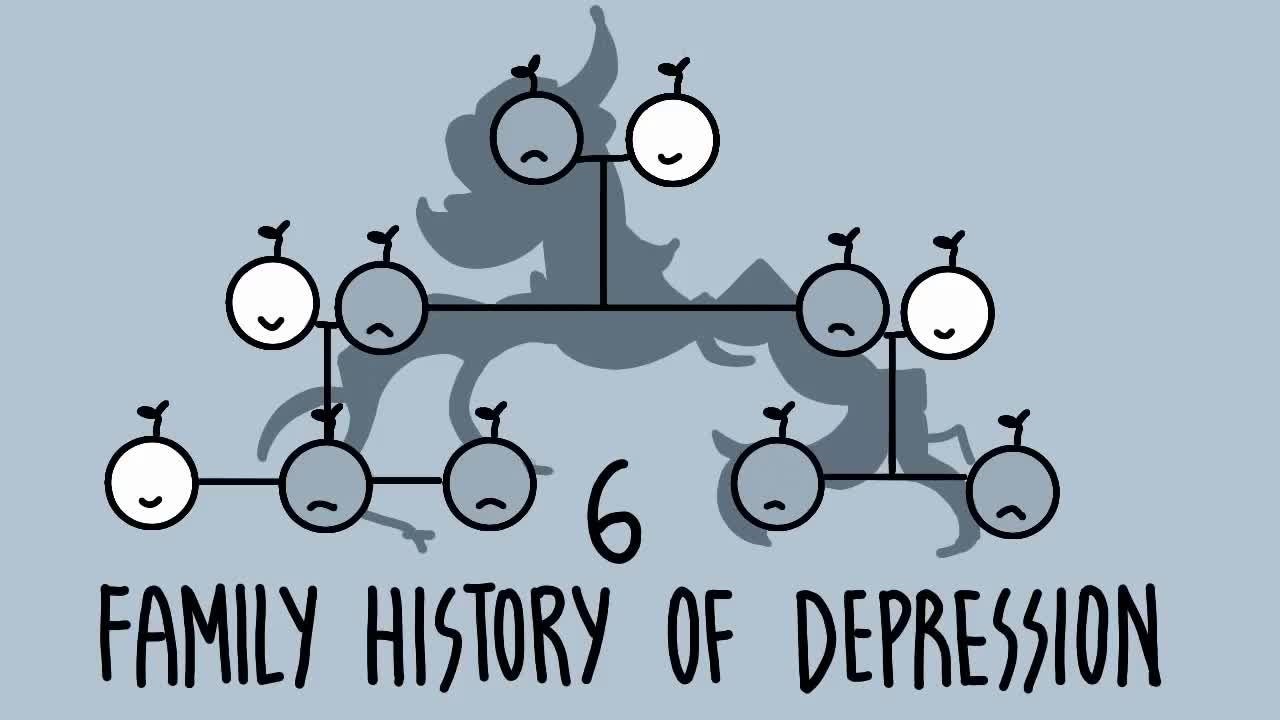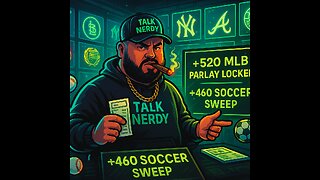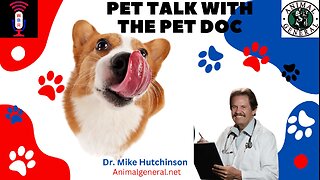Premium Only Content

8 Reasons Why You Feel Depressed
Depression is a mental illness that negatively affects the way you feel, the way you act, and the way you think. Millions of people all over the world fall victim to it every year, but most of us remain ignorant of its nature and causes. According to the American Psychological Association (2013), clinical depression as a mood disorder characterized by low energy, fatigue, loss of interest, lack of motivation, diminished ability to feel pleasure, and a depressed mood that’s present more often than not. The number one most rampant psychiatric condition worldwide, it’s estimated that over 1 in every 6 (16.6%) of people all over the world will experience depression at some point in their lives (American Psychiatric Association, 2015). While none of these causes are singular or direct causes, they can provide insights into why some people are more prone to depression than others.
Disclaimer: Do not use this video to self diagnose. Seek a professional.
Writer: Chloe Avenasa
Script Editor: Rida Batool
Script Manager: Kelly Soong
VO: Amanda Silvera
Animator: Clarisse Lim Xingyi
YouTube Manager: Cindy Cheong
We have a playlist here as well for videos about depression:
https://www.youtube.com/watch?v=Wp8fp...
References:
American Psychological Association (2013). Diagnostic and Statistical Manual of Mental Disorders – 5th Edition. Washington, DC; APA Publishing.
American Psychiatric Association (2015). “What is Depression?” Retrieved 07 April 2020 from www.psychiatry.org/patients-families/depression/what-is-depression
Carter, J. S., & Garber, J. (2011). Predictors of the First Onset of A Major Depressive Episode: Stress and Negative Cognitions. Journal of Abnormal Psychology, 120(4), 779-796.
Seligman, M. (1975). Learned helplessness: theory and evidence. Journal of experimental psychology: general, 105(1), 3.
Beck, A. (1976). Cognitive Therapy and Emotional Disorders. New York, NY; International Universities Press.
Thase (2009).
Barlow, D. H., Farchione, T. J., Fairholme, C. P., & Ehrenreich, J. (2013). Disorders of Emotion: A Unified Protocol for the Treatment of Depressive Disorders. New York, NY; Oxford University Press.
Bradley, R. G., Binder, E. B., Epstein, M. P., Tang, Y., & Ressler, K. J. (2008). Influence of Child Abuse on Adult Depression. Archives of General Psychiatry, 65(2), 190-200.
Lan, R., & Eley, S. E. (2010). A Study on the Clinical Features of Major Depressive Disorder on Adolescents and Their Relatives. Journal of Abnormal Psychology, 111(38), 98-106.
McGuffin, P., Andrew, M., Sham, P., Katz, R., & Kardno, A. (2003). The Heritability of Bipolar Affective Disorder and the Genetic Relationship to Unipolar Depression. Archives of General Psychiatry, 60, 497-502.
Teicher, M. P., & Anderson, S. L. (2011). The Neurobiological Consequences of Early Stress and Childhood Maltreatment. Neuroscience & Biobehavioral Reviews, 27 (10); 33-44.
Aneshensel, C. S., & Stone, J. D. (1982). Stress and depression: A test of the buffering model of social support. Archives of general psychiatry, 39(12), 1392-1396.
Special thanks! We want to say thank you to everyone who's been actively supporting this channel and encouraging our work. It means a lot. We want to keep impacting and saving more lives if possible.
-
 8:28
8:28
nospeedlimitgermany
3 days ago $3.58 earnedFord Mustang GT 5.0 V8 421 PS Top Speed Drive German Autobahn No Speed Limit POV
35.8K15 -
 LIVE
LIVE
SilverFox
7 hours ago🔴LIVE - Fox FINALLY plays FORTNITE
105 watching -
 LIVE
LIVE
Fragniac
4 hours ago🌕 Claire Obscur: EXPEDITION 33 - Act II⚔
165 watching -
 28:39
28:39
The Shannon Joy Show
21 hours ago🔥🔥Are Big Tech ‘Wearables’ Really The Key To Good Health? Dr. Chad Walding Says NO! Special Health Update: (Sponsored By Native Path!)🔥🔥
48K7 -
 4:53
4:53
Talk Nerdy Sports - The Ultimate Sports Betting Podcast
6 hours agoHome Run Heat & European Sweep: Saturday's Sharps Only Card
29.9K -
 15:06
15:06
Doc Rich
2 days agoThey Leaked Classified Intel...
47K37 -
 1:52:48
1:52:48
I_Came_With_Fire_Podcast
16 hours agoSoft POWER: "American First" Does NOT Mean "America Alone"
29.1K1 -
 1:15:25
1:15:25
Wendy Bell Radio
13 hours agoPet Talk With The Pet Doc
51.1K5 -
 2:24:28
2:24:28
Squaring The Circle, A Randall Carlson Podcast
6 hours ago#053 New Discoveries In The Younger Dryas Impact Hypothesis - Squaring the Circle
25K3 -
 4:41
4:41
MudandMunitions
16 hours agoGlock 20 Gen 5 10mm Holster Review IWB Vedder Protuck vs JM Custom Kydex for EDC Concealed Carry
20.6K3